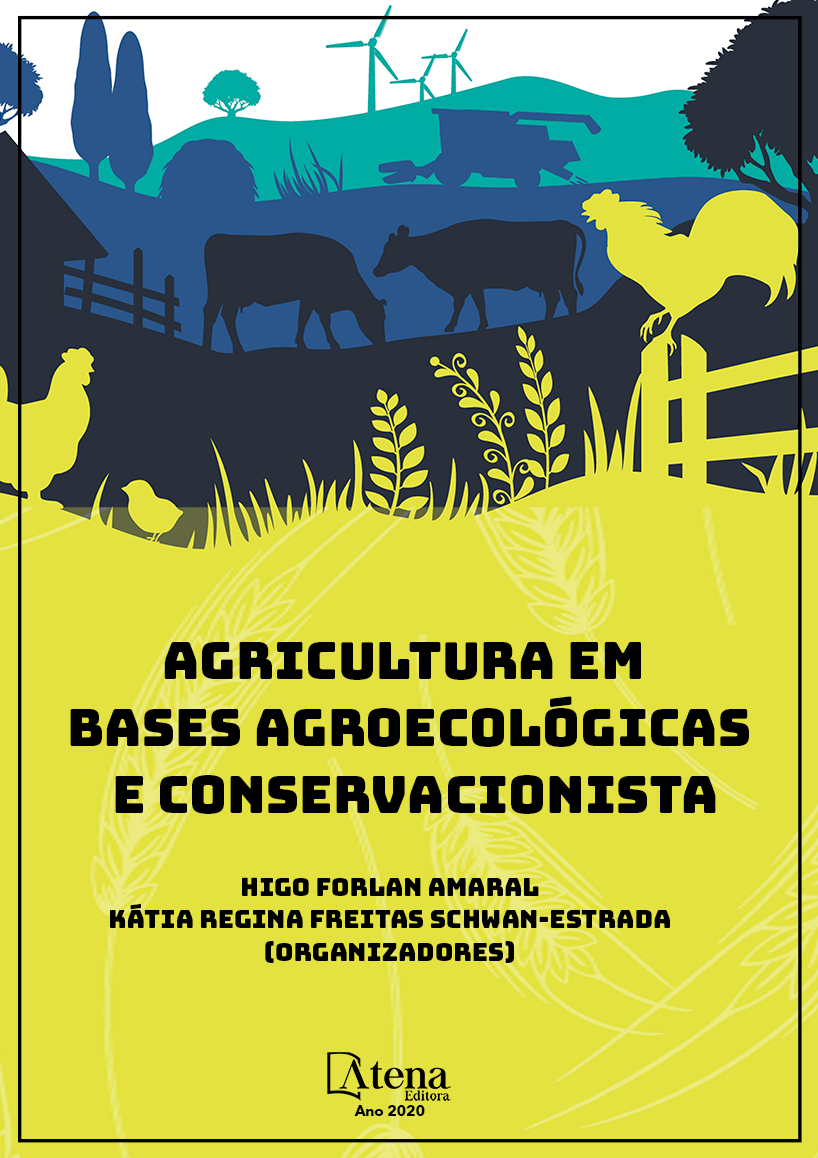
ALTERNATIVAS AGROECOLÓGICAS NA CRIAÇÃO DE ABELHAS Apis mellifera E SUA INFLUÊNCIA NA QUALIDADE FÍSICO-QUÍMICA DO MEL
A apicultura é a criação racional
de abelhas. É uma atividade sustentável e
rentável. Mostra um rápido retorno de capital,
por meio da comercialização do mel, pólen,
própolis, geleia real e cera. Considerando
que estudos direcionados para a atividade
apícola auxiliam na obtenção de produtos de
maior qualidade, buscamos conhecer melhor
alternativas promissoras para a confecção de
caixas padrão Langstroth. O isopor®, sendo um
material de baixo custo, inerte, inodoro, alta
durabilidade e capacidade isolante térmica,
desde que manejado da maneira correta, se
torna uma opção sustentável. As análises
físico-químicas geram dados que podem ser
utilizados no controle de qualidade do mel.
Pois, quando os méis se encontram fora dos
padrões, ou até mesmo adulterados, suas
propriedades benéficas podem ser afetadas
negativamente. Para a determinação da
qualidade do mel, são avaliados os parâmetros
físico-químicos. As análises físico-químicas
indicadas pela legislação brasileira para o
controle de qualidade do mel puro de Apis
são: quanto à maturidade (açúcares redutores,
umidade, sacarose aparente), pureza (sólidos
insolúveis em água, minerais ou cinzas, pólen),
e deterioração (acidez livre, atividade diastásica
e hidroximetilfurfural). Esta revisão teve por
objetivo destacar aspectos que influenciam no
bem-estar das abelhas e como estes refletem na
qualidade físico-química do mel, evidenciando
alternativas sustentáveis para as caixas, que
também favoreçam o manejo do produtor. Pela
importância das abelhas ao meio ambiente
e ao homem, esta revisão tem significativa
relevância, pois difunde o conhecimento sobre
a apicultura e a qualidade do mel, no meio
acadêmico, bem como gera embasamento para
o desenvolvimento de estudos futuros voltados
à área.
ALTERNATIVAS AGROECOLÓGICAS NA CRIAÇÃO DE ABELHAS Apis mellifera E SUA INFLUÊNCIA NA QUALIDADE FÍSICO-QUÍMICA DO MEL
-
DOI: 10.22533/at.ed.0722021023
-
Palavras-chave: Bem-estar. Estresse. Caixas alternativas. Isopor®.
-
Keywords: Welfare. Stress. Alternatives boxes. Isopor®.
-
Abstract:
Beekeeping is the rational breeding
of bees. It is a sustainable and profitable activity.
It shows a rapid return of capital through the
sale of honey, pollen, propolis, royal jelly and
wax. Considering that studies directed to the
beekeeping activity help to obtain higher quality products, we seek to learn more about
promising alternatives for making Langstroth beehives. Styrofoam, being a low cost,
inert, odorless material, high durability and thermal insulating capacity, if properly
managed, becomes a sustainable option. Physicochemical analyzes generate data that
can be used for honey quality control. Because non-standard honey, or even tampered
with, their beneficial properties can be negatively affected. To determine the quality of
honey, the physicochemical parameters are evaluated. The physicochemical analysis
indicated by the Brazilian legislation for the quality control of pure Apis honey are: in
terms of maturity (reducing sugars, moisture, apparent sucrose), purity (water insoluble
solids, minerals or ashes, pollen), and deterioration. (free acidity, diastasic activity
and hydroxymethylfurfural). This review aimed to highlight aspects that influence the
welfare of bees and how they reflect on the physicochemical quality of honey, showing
sustainable alternatives for the beehives, which also favor the management of the
producer. Due to the importance of bees to the environment and humans, this review
has significant relevance, as it disseminates knowledge about beekeeping and honey
quality in the academic environment, as well as provides the basis for the development
of future studies related to the area.
-
Número de páginas: 15
- Agatha Silva Botelho
- Lucimar Peres Pontara
- Bruno


